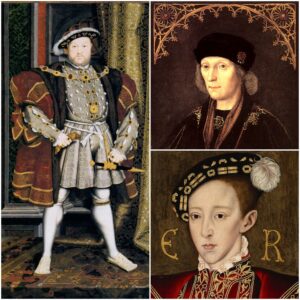 Today, 28th January, is the anniversary of the birth of King Henry VII in 1457, the death of his son, King Henry VIII, in 1547, and the accession of his son, Edward, as King Edward VI.
Today, 28th January, is the anniversary of the birth of King Henry VII in 1457, the death of his son, King Henry VIII, in 1547, and the accession of his son, Edward, as King Edward VI.
You can read more about the death of Henry VIII at Whitehall Palace on 28th January 1547 and the accession of his nine-year-old son in my article 28 January 1547 – The King is dead! Long live the King!.
And you can read more about the birth of the Tudor dynasty’s founder, King Henry VII, in 1457 at Pembroke Castle in my article 28 January 1457 – Birth of Henry VII at Pembroke Castle.
You can also find out about these three Tudor kings in the following 60-second history videos I made about them. They just give the basics of their lives and reigns, but I hope you enjoy them.